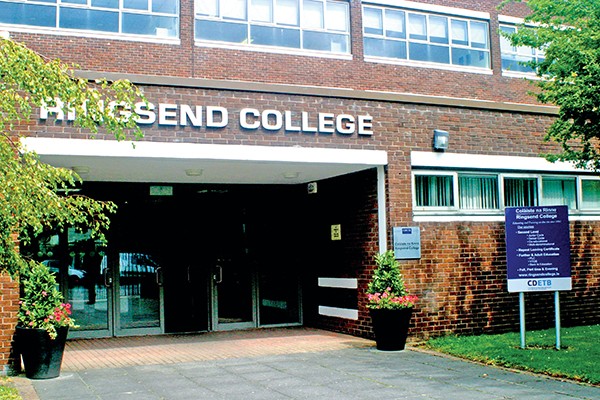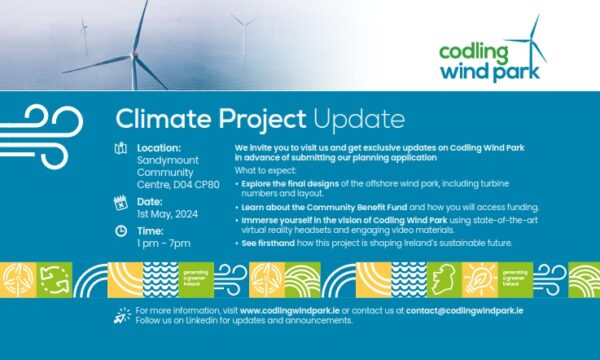
Pictured Above: Ringsend College.
Check out what your local election candidates have to say on the water charges and the Poolbeg Incinerator.
On Tuesday February 10, 2016, election candidates from several parties took part in a Q & A at Ringsend College. Particular attention was paid to the issues of water charges and the Poolbeg Incinerator.
When asked by a student of Ringsend College why people had to pay for water when it is a basic human right, Green Party member Eamon Ryan responded:
“The answer, I suppose, is that it costs us money to get the water. It costs us money to collect it off mountains, rivers and the reservoirs we have to build. It costs us money to clean it, ship it and pump it. It takes a vast amount of money to pump it all the way here.”
He also presented a solution to the problem: “We should have a consecration charge to discourage wasting water, because some measure needs to be taken to let people know that this is precious. We have to look after it, we have to pay a lot of money to get it here.”
Chris Andrews of Sinn Féin discussed how this issue can escalate if not dealt with properly:
“For decades, investment in water and the infrastructure have been last on the list. Now we’ve gotten to a stage where it can’t be ignored any longer. The east coast will probably still have a shortage of water if we don’t fix the pipes and find a new water source.
“Most likely, we will have to take water from the Shannon and then pump it to the east coast, and not just Dublin. It will be from Drogheda to Dublin to Arklow to Mullingar to Portlaoise to supply the eastern part of the country with water.”
He also pointed out that despite popular belief, water charges are nothing new: “In rural Ireland they have always been on group water schemes and they always did pay for water.”
Social Democrats candidate Glenna Lynch reiterated Andrews’ statement, as well as pointing out the government’s failure in running this process:
“Well, the first thing is that we did always pay for water. That didn’t start the day they brought the water charges in. Water has always come out of the taps, there has been water there. But that difficulty is like with so many other things, decades of government have neglected taking care of the process.”
She also highlighted a necessary but undesirable step that will need to be taken to keep the water running in the future:
“So the next thing, and this is quite a scary thing to think about, is to borrow money and if they still don’t have enough money the next thing they will need to do is to bring in investors. Potable, clean water has always been paid for, but why should a person with a huge amount of money pay the same price for access to water as someone who has far less?”
The discussion then moved onto the Poolbeg Incinerator, which none of the candidates had any positive words about. Ryan began by pointing out the damage it will inflict on the community:
“I think it has a negative effect. There’s going to be trucks coming through and ash that has to be stored. It has a negative effect visually and they have to be really careful what comes out and what goes in. It’s not ideal to have it. There’s no benefit!”
Fianna Fáil’s Jim O’Callaghan mirrored Ryan’s statement and added that excessive waste will be needed to keep it running.
“In order for this thing to succeed, we’re going to have to generate huge amounts of waste and they’re going to require people in the city to produce waste, and if they don’t get it from the city they will import it internationally. So I agree with Eamon, it’s sounds too dangerous to me.”
Annette Mooney, representative of the Anti-Austerity Alliance, found the presence of the incinerator to be unjust and an indication of a very flawed system:
“I know the councillors sitting in here, and 50 of the 52 voted against the incinerator, being that it made sense to not have an incinerator. However, there are people in government that could have passed it.
“So even though the people rejected it for the last 20 years and many of us in this room have been on the protest…I’ll say one thing about it, nothing has been burned in it yet, which is the main thing. We know that there will be health risks. We know that the people most likely to be affected by the toxins and fumes produced by what they burn will be those closest to it.”
Finally, Lynch expressed similar sentiments to Mooney, attacking the government for allowing such a thing to exist despite a universally negative reaction:
“I think it’s a monument to a total lack of honesty. People are so frustrated and the entire process is corrupted in terms of judgement, how they have described the consultation process. There is nothing good to say about any part of it.
“I suppose there is a state of disbelief that we have to sit around calmly and say that we’re going to monitor what comes out of it and that your candidates didn’t want it to be built. We’ve got to get to the root of that, because we can’t duplicate that, and there is a kind of air of acceptance about it now.
“Certainly, if I was right living beside it I can’t imagine how frustrating that would be. I don’t know what to say to you, this is a huge problem and it should not have happened.”
By Kevin Carney



